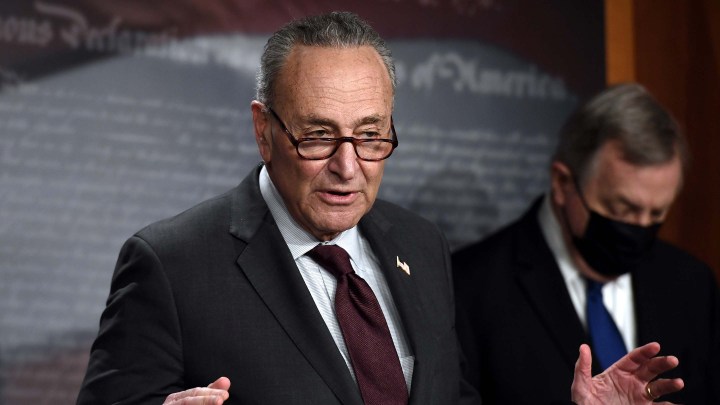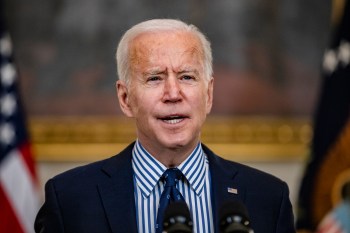
Senate approves budget resolution, key step in passing Biden’s COVID plan
Share Now on:
Senate approves budget resolution, key step in passing Biden’s COVID plan

The Senate early Friday approved a budget resolution that’s a key step toward fast-track passage of President Joe Biden’s $1.9 trillion coronavirus relief plan without support from Republicans. Vice President Kamala Harris was in the chair to cast the tie-breaking vote, her first.
Democrats in the chamber applauded after Harris announced the 51-50 vote at around 5:30 a.m. The action came after a grueling all-night session, where senators voted on amendments that could define the contours of the eventual COVID-19 aid bill.
The budget now returns to the House, where it will have to be approved again due to the changes made by the Senate. Final passage will unlock the next phase in drafting of the virus relief bill, with the work divided among several congressional committees.
Senate Majority Leader Chuck Schumer D-N.Y., called passage of the resolution the “first big step to putting our country back on the road to recovery.”
By moving on a fast track, the goal for Democrats is to have COVID relief approved by March, when extra unemployment assistance and other pandemic aid expires. It’s an aggressive timeline that will test the ability of the new administration and Congress to deliver.
The push for stimulus comes amid new signs of a weakening U.S. economy. Employers added just 49,000 jobs in January, after cutting 227,000 jobs in December, the Labor Department said Friday. Restaurants, retailers, manufacturers and even the health care sector shed workers last month, with state and local governments also letting go of non-school employees.
The unemployment rate fell to 6.3% from 6.7%, but there was a decline in the number of people who were either working or looking for a job in a sign that some people are dropping out of the labor force. The U.S. economy is 9.9 million jobs shy of its pre-pandemic level.
Biden, who has been meeting with lawmakers in recent days to discuss the package, will talk Friday at the White House with the House committee chairs who will be assembling the bill under the budget process known as “reconciliation.”
Biden also plans to make remarks Friday on the economy as he keeps up the pressure on Congress to “act big” on his relief package.
With a rising virus death toll and strained economy, the president’s goal is to have COVID-19 relief approved by March, when extra unemployment assistance and other pandemic aid measures expire. Money for vaccine distributions, direct payments to households, school reopenings and business aid are at stake.
The Senate passed an amendment 99-1 that would prevent the $1,400 in direct checks in Biden’s proposal from going to “upper-income taxpayers.” But the measure, led by Sens. Susan Collins, R-Maine, and Joe Manchin, D-West Virginia, is ultimately symbolic and nonbinding and does not specify at what level a person qualifies as upper income.
The marathon session brought test votes on several Democratic priorities, including a $15 minimum wage. The Senate by voice vote adopted an amendment from Sen. Joni Ernst, R-Iowa, opposed to raising the wage during the pandemic. Ernst said a wage hike at this time would be “devastating” for small businesses.
None of the amendments to the budget are binding on Democrats as they draft their COVID plan, but passage of a wage increase could prove difficult. Even if a $15 wage can get past procedural challenges in the final bill, passage will require the support from every Democrat in the 50-50 Senate, which could be a tall order.
Sen. Bernie Sanders, a vocal proponent of the wage increase, vowed to press ahead. “We need to end the crisis of starvation wages,” he said.
There’s a lot happening in the world. Through it all, Marketplace is here for you.
You rely on Marketplace to break down the world’s events and tell you how it affects you in a fact-based, approachable way. We rely on your financial support to keep making that possible.
Your donation today powers the independent journalism that you rely on. For just $5/month, you can help sustain Marketplace so we can keep reporting on the things that matter to you.


















